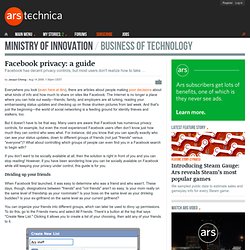

Prez. Steal Eloqua’s Social Media Playbook — It's All About Revenue. The 10-platform, 42-page Eloqua Social Media Playbook was created as a veritable “how-to” guide for our staff to follow on the social Web.

It’s frankly everything we know about social media, distilled into one awesomely designed document (thanks for the smarts and design chops JESS3). Now you can have it. For free. You don’t even have to give us your email address. Not a single form to complete. It contains just about everything you need to know about Twitter, Facebook, LinkedIn, YouTube, Wikipedia, Delicious, Flickr, Google Buzz, Foursquare, Gowalla and blogs. For example: Do you know how to weave Twitter “trending topics” into your communications mix?
We are proud of what we know, how we think, the degree to which we empower our team, and the way we approach the social Web. Incidentally, the Playbook also includes The Content Grid, a framework for sourcing the creation of content and marrying the distribution of that content to the viewer’s stage in the purchase cycle. UM System aims to close gaps between technology, academia. Enrollments in MU online courses are counted by courses taken, not the number of students taking them.

The following are course counts from the 2008-2009 school year. MU Direct An online service is needed to view this article in its entirety. You need an online service to view this article in its entirety. Login Or, use your facebook account: Choose an online service. Need an account? 10,767 mostly nontraditional enrollments Center for Distance and Independent Studies 3,277 mostly residential enrollments They’ve never lived in a world without Windows. Traditional freshmen entering college this fall were born in the early 1990s. When they get to campus this fall, those students will be required to buy bulky textbooks, even though most will read more Facebook statuses than pages over the course of the semester. Some will sit in lecture halls and be asked to follow along as a professor writes on a chalkboard. There are barriers. “There are a lot of roadblocks,” MU Provost Brian Foster said. Top 100 Tools for Learning 2009. Top 100 Tools for Learning 2009 as at 15 November 2009 This list has been compiled from the contributions of 278 Learning Professionals worldwide, whose individual contributions you can read here Here is a presentation of the Top 100 Tools.
Below you can see the full list with links to pages with more information about each of the tools. KEY F = Free, C= Commercial, W = Windows, M=Mac, S=Server, O = Online Cells shaded blue are new tools on the list this year Cells shaded green are tools returning to the list this year C urrent ranking in 2009 # Votes Name Platform Cost Twitter Microblogging tool Delicious Social bookmarking tool YouTube Video sharing site Google Reader RSS / Feed reader Google Docs Office suite Wordpress Blogging tool Slideshare Hosting presentations Google Search Web search tool Audacity Sound editor and recorder Firefox Web browser and extensions Ning Social networking platforms Skype Instant messaging/VoIP PowerPoint Presentation software Blogger Blogging tool Moodle Course mgt system. Facebook privacy: a guide - Ars Technica. Everywhere you look (even here at Ars), there are articles about people making poor decisions about what kinds of info and how much to share on sites like Facebook.

The Internet is no longer a place where you can hide out easily—friends, family, and employers are all lurking, reading your embarrassing status updates and checking up on those drunken pictures from last week. And that's just the beginning—the world of social networking is a feeding ground for identity thieves and stalkers, too. But it doesn't have to be that way.
Many users are aware that Facebook has numerous privacy controls, for example, but even the most experienced Facebook users often don't know just how much they can control who sees what. For instance, did you know that you can specify exactly who can see your status updates, down to different groups of friends (not just "friends" versus "everyone")? Dividing up your friends When Facebook first launched, it was easy to determine who was a friend and who wasn't. No.